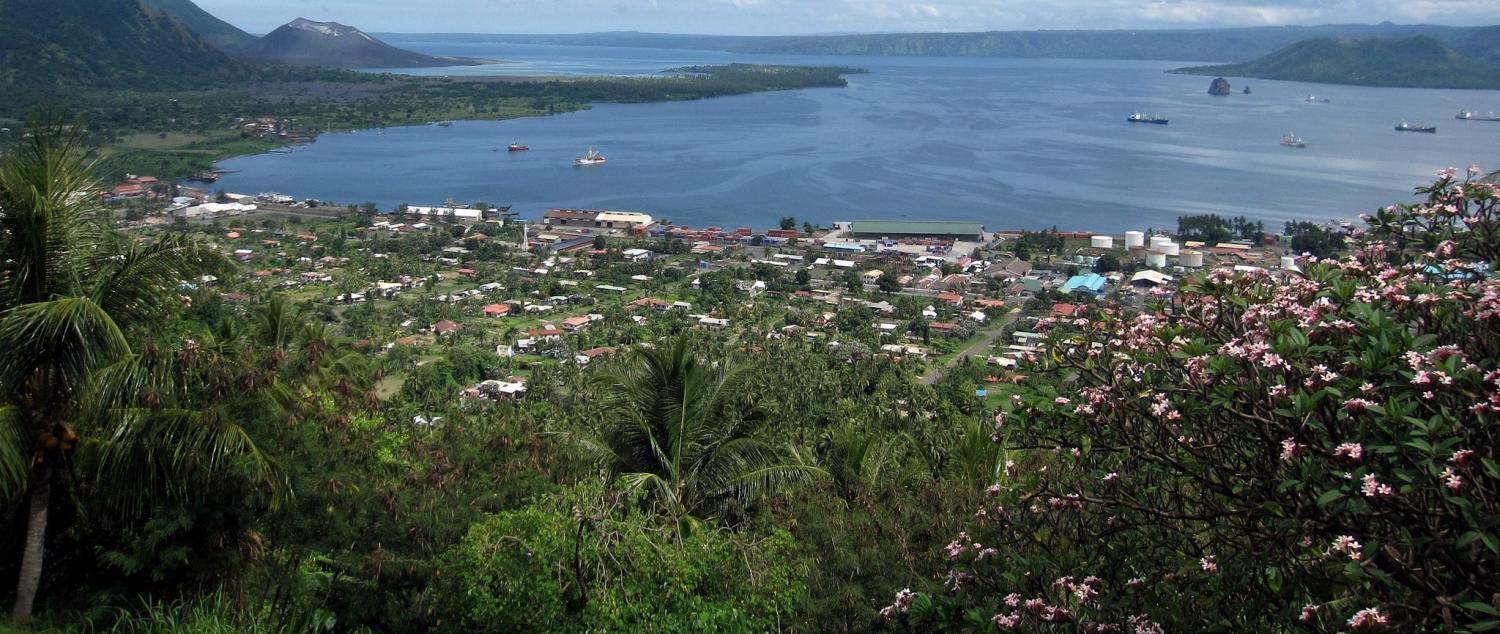Access to information and increased communications capacity bring major benefits to a society. New business opportunities emerge, as do opportunities for education. Access to ICT can broaden opportunities for capacity building and increase workforce productivity.
The adoption and use of information communication technology in Papua New Guinea has increased significantly in the past decade. The penetration of mobile phone usage is one well-documented example of this rise, with coverage growing from about 4.7% in 2007 to 47% in 2015. Internet usage -though gaining - is significantly lower. World Bank statistics suggest around 7.9% of the population is now online. While the rate of growth is the highest in the region, the percentage online remains the lowest; progress is encouraging but there is still a long way to go.
But how does increased connectivity translate to perceivable development improvements in PNG? For key development indicators such as adult literacy and GDP growth, it is still a little early to tell. As growth continues and uptake in various sectors improves, we should see trends emerging.
It's useful to look at other countries that have had greater ICT and internet usage for a longer period of time. A 2011 report by the McKinsey Global Institute that examined the G8 economies and those of Brazil, China, India, South Korea, and Sweden found that internet ‘accounts for a significant and growing portion of global GDP’ – so significant that if the internet and its surrounding business and transactions were seen as a single sector, it would be greater than that of agriculture or energy. Global GDP expansion brings local benefits: the telco industry has forecast the expansion of mobile telecommunication will create 16,000 new jobs across the Pacific Islands, contributing a 6.2% rise to GDP in the region.
The benefits of ICT for development are not only economic in nature. Education is one sector that can dramatically benefit. Caribbean countries which, as small island developing states face similar challenges to many Pacific nations, have used ICT to help bridge the gap in education provision that existed between them and more developed countries. ICT has also proven critical in humanitarian responses to crises, particularly as older technologies such as short-wave radio services are phased out. In Vanuatu during Cyclone Pam and its aftermath ICT was pivotal in coordinating relief efforts and restoring normalcy. This benefit is particularly important in a region that is one of the most prone to natural disasters in the world.
While the benefits of further ICT development in PNG may be clear, many expansion and adoption challenges remain. Of all the countries in the Pacific, PNG is among the most populous with about 7.3 million, 87% of whom live in rural areas where challenging terrain makes further mobile penetration and uptake difficult. Being the largest, most mountainous island in the region, infrastructure has always been an issue for development within PNG.
Internet access costs in PNG are also a substantial barrier. These are among the highest in the world. Even if rural communities are able to receive a mobile internet signal, the cost to access may be prohibitive. This can deter small business owners looking to improve their business but who may not have the budget for internet. With 3G and now 4G coverage increasing, and an internet exchange point planned (which should improve the quality and, to a degree, lower service costs), cost rather than accessibility is likely to be the major barrier for further urban uptake. Improved service quality would also help encourage PNG businesses to adopt ICT innovations, provided costs can be brought down. Further government and development agency investment in ICT, particularly to help reduce costs, would therefore go a long way and be well received by the public, given the trends in uptake.
A further challenge to be reckoned with is the disruptive impact ICT can have on existing industries. A notable example is PNG’s domestic media, which is being overtaken by social media and blogs that often operate with little oversight. A 2014 study from ABC International Development on access to information in Papua New Guinea, reported a decline in radio listenership. This was attributed, at least in part, to increased interest in the internet. As developed nations have discovered, few sectors are immune to technology-enabled disruption. This cannot be avoided but it can be anticipated. For this reason, the relevant offices and agencies need to plan carefully when developing strategies involving ICT.
It is encouraging to see that the rate of growth in internet usage within PNG has ticked up so significantly and spawned new opportunities, but there is still a lot of work to be done. PNG is not alone in this endeavour, as illustrated by discussions at the Small Island Developing States Roundtable hosted by the Internet Governance Forum. A good starting point for PNG would be to collaborate with global organisations charged with promoting good internet governance for the betterment of society. Such organisations, including the ITU, ICANN and APNIC, are well-placed to promote best practice policy development in developing states. The multi-stakeholder, bottom-up approach to governance is much favoured within the internet space. Taking this approach would go a long way to ensuring various sectors’ interests are taken into account in future policy development to promote growth in ICT and consequently advance PNG’s sustainable development goals.

